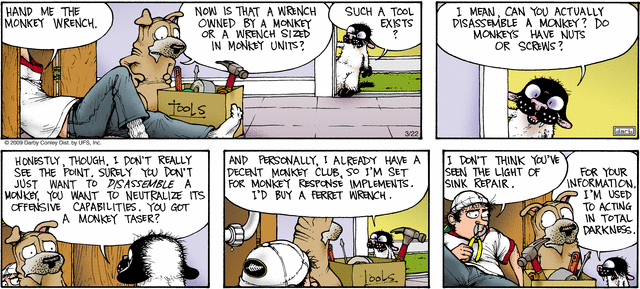We have been clear that we will
Politicians who have to assert some proposition P often take advantage of the opportunity to flap their mouths a bit more by asserting not just that P but also that they have consistently maintained that P in the past. It functions as a kind of gratuitous self-affirmation regarding consistency over time, and a pre-emptive defense to any possible charge of flip-flopping. The habit has spawned what appears to me to be an entirely new construction. The spokesman for UK prime minister Gordon Brown said yesterday (in a defensive response to something the governor of the Bank of England had said about Britain being unable to afford another round of debt-fueled stimulus to the economy): "We have been clear that we will do whatever it takes to see us through the global downturn." It seems to me that this is almost entirely a feature of minister-speak, and to a lesser extent corporate-speak ("Certainly Microsoft is a well-respected and successful company and we have been clear that we are fully prepared to do a deal with them", said a Yahoo! release recently). Lots of people think (ever since Orwell's "Politics and the English language") they are highly sensitive to new developments of government and business jargon. Yet I don't believe that "We have been clear that P" has been discussed in language forums before (I could be wrong). Despite all the grumbling about newfangled clichés (often not so newfangled), when a new syntactic construction limited to organizational jargon comes along, apparently people don't spot it.

